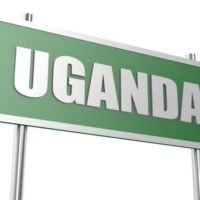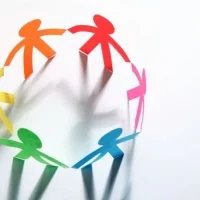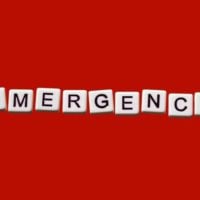The Norwegian Agency for Development Cooperation, commonly known as Norad, plays a pivotal role in shaping Norway’s international development policy and practice. Established in 1968, Norad operates under the auspices of the Norwegian Ministry of Foreign Affairs, with a mission to promote sustainable development and reduce poverty in developing countries. The agency is tasked with managing Norway’s development assistance, ensuring that funds are allocated effectively to projects that align with both national priorities and global development goals.
Norad’s approach is characterized by a commitment to transparency, accountability, and collaboration with various stakeholders, including governments, civil society organizations, and the private sector. Norad’s strategic focus encompasses a wide range of sectors, including education, health, climate change, and gender equality. By leveraging Norway’s expertise and resources, Norad aims to address the multifaceted challenges faced by developing nations.
The agency emphasizes the importance of evidence-based interventions and innovative solutions to foster sustainable development. Through its various programs and initiatives, Norad seeks not only to alleviate immediate needs but also to empower communities and build resilience for the future.
Norad’s Efforts in Addressing Climate Change
Addressing Climate Change through Development Cooperation
By funding projects that focus on climate resilience, Norad contributes to the global fight against climate change while simultaneously fostering economic growth in developing regions. One of Norad’s key strategies involves promoting climate-smart agriculture, which seeks to increase food security while minimizing environmental impact.
Empowering Communities through Sustainable Practices
By investing in research and development, as well as providing technical assistance to farmers, Norad helps communities adopt practices that are both productive and sustainable. This approach enables communities to enhance their adaptive capacity and reduce their vulnerability to climate-related shocks.
International Collaboration and Policy Development
Additionally, the agency collaborates with international organizations to strengthen policies that address climate change at national and regional levels. Through these efforts, Norad not only aids in reducing vulnerability to climate-related shocks but also empowers communities to thrive in an increasingly uncertain world.
Norad’s Initiatives in Promoting Sustainable Energy
Access to reliable and sustainable energy is crucial for economic development and poverty reduction. Recognizing this, Norad has prioritized sustainable energy initiatives as part of its broader development agenda. The agency supports projects that aim to expand access to clean energy sources, particularly in rural areas where traditional energy infrastructure is lacking.
By investing in renewable energy technologies such as solar, wind, and hydropower, Norad helps communities transition away from fossil fuels and reduce their carbon footprint. Norad’s approach to promoting sustainable energy is multifaceted. The agency not only provides financial support for energy projects but also emphasizes capacity building and knowledge sharing.
By working closely with local partners, Norad ensures that communities have the skills and resources necessary to maintain and operate renewable energy systems effectively. Furthermore, Norad advocates for policies that facilitate investment in sustainable energy infrastructure, thereby creating an enabling environment for long-term growth. Through these initiatives, Norad contributes to a more sustainable energy future while enhancing the quality of life for millions of people.
Norad’s Role in Improving Education in Developing Countries
Education is a fundamental driver of development and a key component of Norad’s mission. The agency recognizes that access to quality education is essential for breaking the cycle of poverty and empowering individuals to reach their full potential. Norad supports a wide range of educational initiatives aimed at improving access to education, enhancing learning outcomes, and promoting inclusive education for marginalized groups.
By investing in education, Norad seeks to create opportunities for young people and foster social cohesion within communities. Norad’s educational programs often focus on strengthening local education systems by providing technical assistance and capacity building for teachers and administrators. The agency also emphasizes the importance of gender equality in education, advocating for equal access for girls and boys alike.
Through partnerships with international organizations and local governments, Norad works to develop innovative solutions that address barriers to education, such as poverty, conflict, and discrimination. By prioritizing education as a cornerstone of development, Norad contributes to building a more equitable and prosperous future for all.
Norad’s Commitment to Promoting Gender Equality
Gender equality is not only a fundamental human right but also a prerequisite for achieving sustainable development. Norad is deeply committed to promoting gender equality across all its development efforts. The agency recognizes that empowering women and girls leads to improved health outcomes, economic growth, and social stability.
As such, Norad integrates gender considerations into its programs and policies, ensuring that women’s voices are heard and their needs are addressed. Norad supports initiatives that aim to eliminate gender-based violence, enhance women’s economic empowerment, and promote women’s leadership in decision-making processes. By funding projects that focus on women’s rights and gender equality, Norad helps create an environment where women can thrive and contribute meaningfully to their communities.
Additionally, the agency collaborates with local organizations to raise awareness about gender issues and advocate for policy changes that promote equality. Through these efforts, Norad plays a crucial role in advancing gender equality as a cornerstone of sustainable development.
Norad’s Impact on Improving Healthcare in Developing Nations
Strengthening Health Systems
The agency supports programs aimed at strengthening health systems, improving maternal and child health outcomes, and combating infectious diseases. By addressing health challenges head-on, Norad contributes to building healthier communities and enhancing overall quality of life.
Capacity Building and Integration
Norad’s healthcare initiatives often focus on capacity building within local health systems. This includes training healthcare workers, improving infrastructure, and ensuring access to essential medicines and services. The agency also emphasizes the importance of integrating health services with other sectors such as education and nutrition to create comprehensive approaches to health promotion.
Global Collaboration and Impact
Furthermore, Norad collaborates with international organizations to address global health challenges such as pandemics and emerging diseases. Through these efforts, Norad plays a vital role in improving healthcare access and outcomes for vulnerable populations.
Collaborations and Partnerships in Norad’s Development Efforts
Collaboration is at the heart of Norad’s approach to development cooperation. The agency recognizes that complex global challenges require collective action and shared expertise. As such, Norad actively seeks partnerships with a diverse range of stakeholders, including governments, non-governmental organizations (NGOs), academic institutions, and the private sector.
By fostering collaboration, Norad enhances the effectiveness of its programs and maximizes the impact of its investments. Norad’s partnerships often involve co-financing projects with other donors or organizations working in similar sectors. This collaborative approach not only leverages additional resources but also facilitates knowledge sharing and best practices among partners.
Furthermore, Norad engages with local communities to ensure that development initiatives are contextually relevant and responsive to the needs of those they aim to serve. Through these collaborative efforts, Norad strengthens its capacity to address pressing global challenges while promoting sustainable development.
Norad’s Ongoing Efforts in Global Development
In conclusion, the Norwegian Agency for Development Cooperation (Norad) plays a vital role in advancing global development through its multifaceted approach to addressing poverty and inequality. With a strong commitment to sustainability, gender equality, education, healthcare, and climate change mitigation, Norad continues to make significant contributions to improving the lives of people in developing countries. By fostering collaboration with various stakeholders and prioritizing evidence-based interventions, the agency ensures that its efforts are impactful and aligned with global development goals.
As the world faces increasingly complex challenges such as climate change, health crises, and social inequality, Norad’s ongoing efforts remain crucial in promoting resilience and sustainable growth. The agency’s dedication to empowering communities through education, healthcare access, gender equality initiatives, and sustainable energy solutions underscores its commitment to creating a better future for all. As it moves forward, Norad will undoubtedly continue to play an essential role in shaping international development policy while making meaningful contributions toward achieving a more equitable world.









































